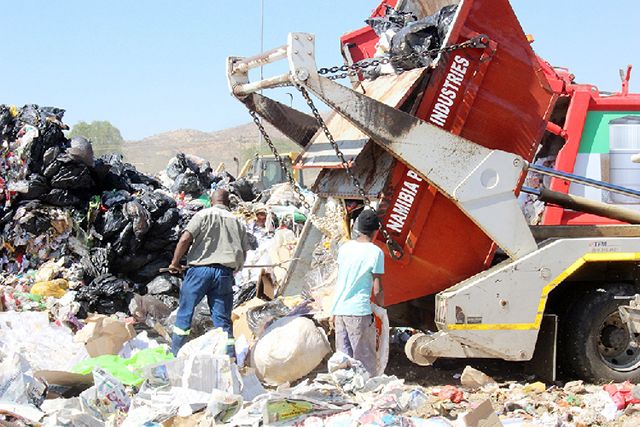“A GOVERNMENT that takes from Petrus to pay Paulus can always depend on the support of Paulus.” – (slightly modified) George Bernard Shaw (1856-1950).
But this is the trade-off, the promise that Petrus will continue to have the ability to pay (and more) and that Paulus will one day be in a position to pay (Vision 2030). Mix this with the art of taxation – “to pluck the maximum quantity of feathers from the goose with a minimum of hissing” with a need “not to kill the goose that lays the golden egg” and matters become more fun – and a decided need to be careful who and how we pluck! Enough quotes.So there are those who pay and those who don’t but all are potential beneficiaries of government activity – the provision of services, schools, clinics, Police and even that much-maligned institution, the taxman! There are, of course, others who benefit in more nefarious ways through patronage and self-enrichment as government coffers are always a source of considerable funds – for use or misuse.But it is not the spend (or mis-spend) side I wish to address; that is another issue.It is satisfying the essential and increasing financial needs of government in a sustainable manner to take Namibia and all its people forward towards Vision 2030.I am suggesting that our current collection system needs change.In doing this it is first essential to “know thine enemy”, or in more moderate terms, the opposition.After all “resistance to change” is the bane of all proposing reform – and as taxation has been around for more that 5 000 years, there is a lot of organisational baggage out there! Not least a formidable industry focussed on delaying, minimising, avoiding and, occasionally, evading tax liability with the contra of a collection system that has developed multiple skills and procedures to counter this industry.Add to this the software developers, the fixers, the litigation lawyers, the comparative analysts, trade negotiators – and the list goes on and on, and a daunting list indeed.But why change anyway – it all seems to be working fine? Dynamic business policy accepts that change is both necessary and inevitable so direct it rather than wait for it to direct you – and start when the going is good; anticipate the problems.What problems? It seems self evident that as the WTO process grinds on the corporate machine and their dependent governments, the BIG countries, will progressively reduce our (and every one else’s) trade tariffs as oligarchic commerce continues to consolidate and gain power; this means that a biggest slice of our revenue, the SACU rebate, will progressively reduce.Company and individual tax collection has improved dramatically due to positive action by the Ministry of Finance but this increasing source of revenue will eventually tail off as evaders and defaulters realise that, in this case, crime doesn’t pay; revenue will consolidate at the higher threshold – windfalls will blow away.VAT, while being a collection success, unfortunately hits the poor hardest and may come under political pressure with demands for liability exceptions; such compromises will devalue the VAT success story as that success is due to simplicity.But our current raft of taxes could well be under threat and the time to act is now.But the simplicity, clear source targeting (everyone!) and the good electronic management / auditing of the VAT success maybe provides clues for an alternative system of tax.The other need is that much talked about need is to “broaden the tax base”, good intent but collection economics seem to pull in the other direction.Fewer Petruses and more Pauluses – hissing increases! However there remains one sector of Namibia’s economy that remains untaxed – the informal sector (who I shall call Moses), which almost by definition is of unknown size but known to be significant, possibly over 50% of the size of the formal economy (“the Petruses”); but, again for obvious reasons it is not possible to tax this sector directly – but it is dynamic, generates and spends money – often at the less-than-legal end of the sector, I suggest, in considerable amounts.Money launderers, drug dealers, those who deal in glittery stones and the like are unlikely to register a company and seek a tax number! But they do like the bling – they spend but are not taxed directly! Then a tax system is a fine source of information but is only of value when the information is in “real time”, in a form that can be electronically analysed and quickly acted upon – and “real time” is equally important in collection, ideally the money should flow to the Treasury as liability is incurred.The current system only provides information long after the event and “cash up front” remains a distant dream.Can this be improved upon? The risk factor of introducing a new form of taxation has to be balanced against the risk of not changing; ideally any new tax should be introduced at such a rate (very low and narrowly targeted) as to minimise disturbance to the economy and existing taxation regimes but with the flexibility to be rolled out easily to a wider tax base once the methodology has stabilised.A need for minimum additional legislation would be a plus and it must be understandable to those targeted to pay.In a similar vein anything new requires new human skills which are already in desperately short supply in the quantitative professions – but then minimising the human interface at the tax collection interface is also a prime way to reduce losses through malpractice and corruption.An ICT based system would be ideal as a small number of skilled personnel can control large amounts of data and audit trails are clear.And where do we have such skills? In our banking and financial services sector – where they pluck us all with ease and the thought of them collecting our taxes for us has …There several other important factors but this is not a textbook! Just dialogue.So who do we pluck and how do we pluck with a minimum of hissing? Well Petrus is already being seriously plucked, but Moses, from the informal side, remains untouched while Paulus still needs more help – demands increase.The simple answer is to tax all financial transactions, internal and external, made by our banking and financial services sectors – fortunately the same sectors that have both the most effective regulatory bodies, Namfisa and the Bank of Namibia and the ICT skills.How much to replace all existing taxes? Some suggestions work on 0.3% on both sides of the transaction – who knows, but a low introductory level with regulatory flexibility would soon find out empirically, allow adjustment and avoid more consultants! Yes, I can hear the cash and barter brigade already, and yes tax reduction strategies pay but certainly do not add to productivity, and yes we can change and may have to.It is up to us all.But at the moment Petrus is being goosed and Moses has yet to be plucked.But we also want to turn our Pauluses into Petruses (Vision 2030) Then everyone can get plucked together.Equity!Mix this with the art of taxation – “to pluck the maximum quantity of feathers from the goose with a minimum of hissing” with a need “not to kill the goose that lays the golden egg” and matters become more fun – and a decided need to be careful who and how we pluck! Enough quotes.So there are those who pay and those who don’t but all are potential beneficiaries of government activity – the provision of services, schools, clinics, Police and even that much-maligned institution, the taxman! There are, of course, others who benefit in more nefarious ways through patronage and self-enrichment as government coffers are always a source of considerable funds – for use or misuse.But it is not the spend (or mis-spend) side I wish to address; that is another issue.It is satisfying the essential and increasing financial needs of government in a sustainable manner to take Namibia and all its people forward towards Vision 2030.I am suggesting that our current collection system needs change.In doing this it is first essential to “know thine enemy”, or in more moderate terms, the opposition.After all “resistan
ce to change” is the bane of all proposing reform – and as taxation has been around for more that 5 000 years, there is a lot of organisational baggage out there! Not least a formidable industry focussed on delaying, minimising, avoiding and, occasionally, evading tax liability with the contra of a collection system that has developed multiple skills and procedures to counter this industry.Add to this the software developers, the fixers, the litigation lawyers, the comparative analysts, trade negotiators – and the list goes on and on, and a daunting list indeed.But why change anyway – it all seems to be working fine? Dynamic business policy accepts that change is both necessary and inevitable so direct it rather than wait for it to direct you – and start when the going is good; anticipate the problems.What problems? It seems self evident that as the WTO process grinds on the corporate machine and their dependent governments, the BIG countries, will progressively reduce our (and every one else’s) trade tariffs as oligarchic commerce continues to consolidate and gain power; this means that a biggest slice of our revenue, the SACU rebate, will progressively reduce.Company and individual tax collection has improved dramatically due to positive action by the Ministry of Finance but this increasing source of revenue will eventually tail off as evaders and defaulters realise that, in this case, crime doesn’t pay; revenue will consolidate at the higher threshold – windfalls will blow away.VAT, while being a collection success, unfortunately hits the poor hardest and may come under political pressure with demands for liability exceptions; such compromises will devalue the VAT success story as that success is due to simplicity.But our current raft of taxes could well be under threat and the time to act is now.But the simplicity, clear source targeting (everyone!) and the good electronic management / auditing of the VAT success maybe provides clues for an alternative system of tax.The other need is that much talked about need is to “broaden the tax base”, good intent but collection economics seem to pull in the other direction.Fewer Petruses and more Pauluses – hissing increases! However there remains one sector of Namibia’s economy that remains untaxed – the informal sector (who I shall call Moses), which almost by definition is of unknown size but known to be significant, possibly over 50% of the size of the formal economy (“the Petruses”); but, again for obvious reasons it is not possible to tax this sector directly – but it is dynamic, generates and spends money – often at the less-than-legal end of the sector, I suggest, in considerable amounts.Money launderers, drug dealers, those who deal in glittery stones and the like are unlikely to register a company and seek a tax number! But they do like the bling – they spend but are not taxed directly! Then a tax system is a fine source of information but is only of value when the information is in “real time”, in a form that can be electronically analysed and quickly acted upon – and “real time” is equally important in collection, ideally the money should flow to the Treasury as liability is incurred.The current system only provides information long after the event and “cash up front” remains a distant dream.Can this be improved upon? The risk factor of introducing a new form of taxation has to be balanced against the risk of not changing; ideally any new tax should be introduced at such a rate (very low and narrowly targeted) as to minimise disturbance to the economy and existing taxation regimes but with the flexibility to be rolled out easily to a wider tax base once the methodology has stabilised.A need for minimum additional legislation would be a plus and it must be understandable to those targeted to pay.In a similar vein anything new requires new human skills which are already in desperately short supply in the quantitative professions – but then minimising the human interface at the tax collection interface is also a prime way to reduce losses through malpractice and corruption.An ICT based system would be ideal as a small number of skilled personnel can control large amounts of data and audit trails are clear.And where do we have such skills? In our banking and financial services sector – where they pluck us all with ease and the thought of them collecting our taxes for us has …There several other important factors but this is not a textbook! Just dialogue.So who do we pluck and how do we pluck with a minimum of hissing? Well Petrus is already being seriously plucked, but Moses, from the informal side, remains untouched while Paulus still needs more help – demands increase.The simple answer is to tax all financial transactions, internal and external, made by our banking and financial services sectors – fortunately the same sectors that have both the most effective regulatory bodies, Namfisa and the Bank of Namibia and the ICT skills.How much to replace all existing taxes? Some suggestions work on 0.3% on both sides of the transaction – who knows, but a low introductory level with regulatory flexibility would soon find out empirically, allow adjustment and avoid more consultants! Yes, I can hear the cash and barter brigade already, and yes tax reduction strategies pay but certainly do not add to productivity, and yes we can change and may have to.It is up to us all.But at the moment Petrus is being goosed and Moses has yet to be plucked.But we also want to turn our Pauluses into Petruses (Vision 2030) Then everyone can get plucked together.Equity!
Stay informed with The Namibian – your source for credible journalism. Get in-depth reporting and opinions for
only N$85 a month. Invest in journalism, invest in democracy –
Subscribe Now!










